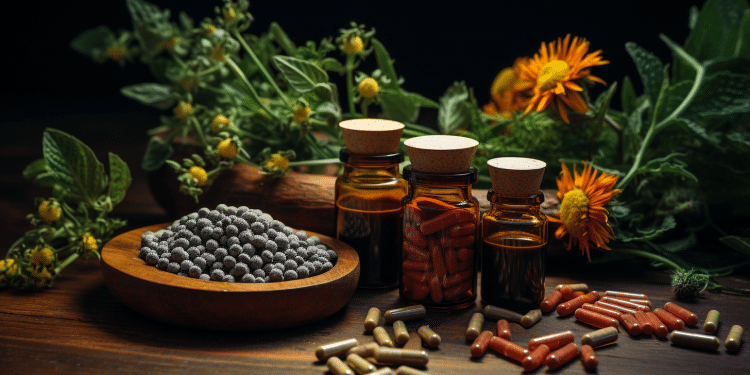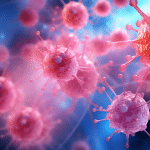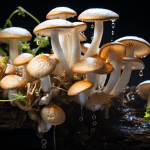What is Ergothioneine Good For?
Ergothioneine, also known as ETT, is an amino acid originally found in the sclerotia of the ergot fungus.
Your body needs nine essential amino acids in order to synthesize and build proteins to grow muscles and provide energy. It cannot produce these amino acids on its own. Other amino acids are known as conditionally necessary, or non-essential, because your body can produce them. However, this does not mean it is not valuable to supplement some aminos for their unique benefits.
Scientists initially began researching L-ergothioneine when they discovered it in certain animals red blood cells.
Plants do not synthesize ETT, and the human body cannot produce it itself. However, humans and other mammals can eat foods containing ETT, as well as plants that have taken up the amino acid via the soil, where it lies dormant.
4 Potential Benefits of L-Ergothioneine
1. May Reduce Inflammation
Research suggests that, as an antioxidant, ETT may protect against inflammation. Rheumatoid arthritis is an autoimmune disease marked by high (and often unexplained) inflammation. It is possible that ETT could decrease inflammation in patients with RA.
A couple of years ago, there was some suspicion. Patients with RA (rheumatoid arthritis) tended to have elevated levels of ergothioneine, leading people to think ETT supplements would worsen the symptoms of RA. However, the European Union has determined this is not true. Ergothioneine supplements do not increase the risk that an individual will develop an RA flare-up.
2. May Help Prevent Neurodegenerative Diseases
As a cytoprotectant, ETT is a popular supplement for patients with Alzheimers disease and Parkinsons disease. ETT supports the body’s natural antioxidant protection systems and can protect brain cells from oxidative damage and free-radical stress. Because of its cytoprotectant and antioxidant properties, ETT is a preferred amino acid for patients with liver diseases.
3. Ergothioneine Skin Benefits
You will frequently find ETT in a lot of skincare products due to its cytoprotectant and antioxidant properties, it can protect your skin cells from oxidative damage. Free radical damage and oxidative stress are the main culprits for premature ageing, loose skin, and wrinkles. The U.S. Department of Defense awarded researchers at the University of Colorado with a $1.34 million grant to investigate ETTs antioxidant actions for the treatment of lung diseases among combat veterans.
4. Anti-oxidant benefits of L-Ergothioneine
L-ergothioneine is more than an amino acid. It is an antioxidant, too! Specifically, studies show it is a cytoprotectant. In other words, ETT protects cells from toxins, free radicals, and harmful substances. Free radicals are a normal part of life.
They get into the body, your cells take them in, and they get oxidized. Over time, your cells cannot neutralize free radicals quickly enough, and they start accumulating in your body, leading to oxidative stress. Oxidative stress leads to the death of cells and damage in DNA.
Imagine that you are making a fruit salad. You are cutting up bananas, apples, oranges, kiwis, and strawberries.
After several hours, the bananas and apples begin turning brown, because they were exposed to oxygen and did not have high levels of antioxidants to guard them from oxidative damage. The oranges, kiwis, and strawberries, however, are still looking fresh because they do have antioxidants.
What happens when you put some lemon juice in the fruit salad. The Vitamin C in lemon juice, which is an antioxidant, protects the apples and the bananas, so they will not turn as dark. Studies found that, as an antioxidant and cytoprotectant, ETT accumulated in the particular cells in your body that needed the antioxidant power the most, protecting them from damage from free radicals and oxidative stress.
You can find our favorite ergothioneine supplement on the following pages of our website and learn more about each individually:
Learn more:












